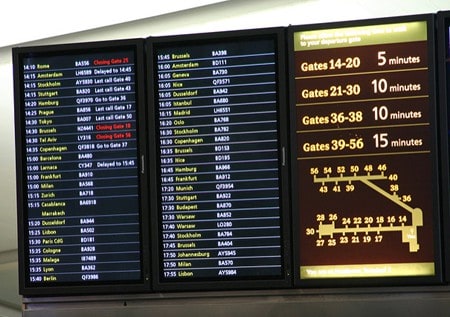What do going out for dinner, choosing a shampoo, or planning a holiday all have in common? You’ve guessed it: maths. Numerical and logical thinking play a part in each of these everyday activities, and in many others. A good understanding of maths in everyday life is essential for making sense of all the numbers and problems life throws at us.
Maths on the menu
It’s your birthday and you’ve decided to go out for a meal with some friends. While you won’t be having fried formulas or a side-order of statistics, maths is involved at every stage.
Looking down at the menu, you eye up the prices. The restaurant owner has worked out how much she needs to charge for her food by creating a business model detailing the cost of raw ingredients, staff wages and so on. She also has to calculate how these costs might change in the future and how many customers she expects. Many restaurants fail within their first year because of poor mathematical planning.
Thankfully this one is still open for business, so you place your order and the chef gets to work. You’d better hope he has a good grasp of maths, because understanding measurement, ratio, and proportion can be the difference between something delicious and something that ends up in the dustbin.
Turns out you’re in luck, and the food is excellent. You just about make room for dessert and it’s time to split the bill. Who had the pizza? Did you have one drink, or two? Did the waiter add everything up correctly? Being able to perform quick mental calculations will get it sorted in no time – and percentages help with leaving a tip!
Read more about food and maths
 Shampoo statistics
Shampoo statistics
Washing your hair isn’t exactly rocket science, but with so many brands of shampoo out there it can be difficult to decide which to use. You probably just pick one and stick to it, but advertisers often use statistics to get you to switch brands.
A typical advertising claim might be ‘80 per cent of people prefer our shampoo to their old one’ – but what does that actually mean? In what way did they prefer it? What about those who didn’t like it? Without knowing how many people were surveyed and what they were asked, this claim doesn’t really say much. When it comes to statistics, the questions are just as important as the answers.
Still, maybe the adverts worked and you decide to buy some new shampoo. You can get a 250 ml bottle for £2, or a 400 ml bottle for £3.50, but which is better value? Just as with settling the restaurant bill, mental maths is incredibly helpful for getting a good deal.
Read more about understanding statistics
Sums in the sun
Even when you’re looking to spend some time in the sun maths in everyday life is all around you, because planning a holiday is all about optimisation. Deciding where to visit is just the first of a whole bunch of questions. When is the best time of year to go? How do I get to the airport on time? Can I fit all these clothes in my suitcase? Answering these questions involves working with numbers – hotel prices, flight timetables, suitcase volumes – to come up with the best results.
Once you get there, maths still comes in handy. Maths and numbers are universal, so even if you don’t speak the language you can understand prices and times, and mentally converting currencies lets you check whether you’re spending £1 or £10. That certainly helps when you’re picking out souvenirs.
Read more about money and maths
Using maths in everyday life
It’s almost impossible to get through a day without using maths in some way, because our world is full of numbers to handle and problems to solve. Studying the maths in everyday life provides you with the tools to make sense of it all, making life that little bit easier.
Image Credit: Connections by Jeff Kramer @ Flickr






